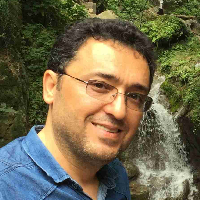A comparison of continuous and discrete indices in measuring Gorgan forest landscape fragmentation
Author(s):
Abstract:
Landscape ecology is mainly based on the patch-corridor-matrix model. Although this model is efficient and has been successfully used in landscape ecology studies, but it is believed that this model cannot consider the continuous heterogeneity. This fact has encouraged researchers in the field to find new indicators for landscape analysis in a continuous framework. The aim of this study is a comparison of continuous and discrete indices in measuring Gorgan forest landscape fragmentation based on the moving window technique. This technique was performed on a classified map derived from SPOT satellite image in year 2010 using a maximum likelihood algorithm and on NDVI vegetation index from a Landsat satellite image of the year 2010. Window sizes were considered in 60, 90, 150 and 300 meters and six landscape class-level metrics were selected for the comparison including LPI, LSI, SPLIT, MESH, AI and PLAND. To assess the correlation between the output images of each of these metrics, the Spearman rank correlation coefficient was used. The results of the statistical comparisons of different window sizes showed that the values of the correlation coefficient were increased with increasing window size, as the high correlation values were seen when the window size was 300m belonging to PLAND and SPLIT metrics. All of the metrics had minimum correlation values in the window size 60m and the LSI metric had the lowest correlation (0.33).
Keywords:
Language:
Persian
Published:
Journal of Rs and Gis for natural Resources, Volume:7 Issue: 3, 2016
Pages:
30 to 45
https://magiran.com/p1617348
سامانه نویسندگان
مقالات دیگری از این نویسنده (گان)
-
Utilization of Fourier Transform and Landscape Metrics for Landscape Health Assessment
Niloufar Islamzadeh *, Alireza Mikaieli Tabrizi, Abdolrassoul Salmanmahiny, Rasul Ghorbani
Environmental Researches, -
Investigation of the distribution of plant species for systematic mapping of urban habitats with an ecological approach (Case study: Districts 9 and 11 of Mashhad City)
Raziyeh Donyavi, Alireza Mikaeili Tabrizi *, Abdolrasoul Salmanmahini, Azadeh Karimi
Journal of Environmental Studies,


